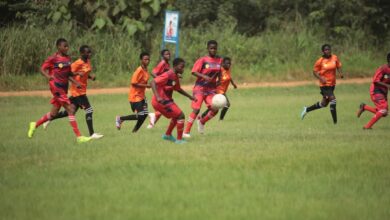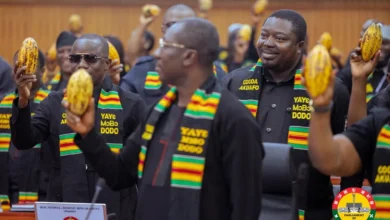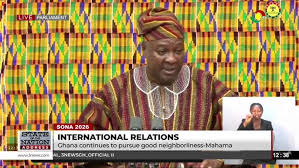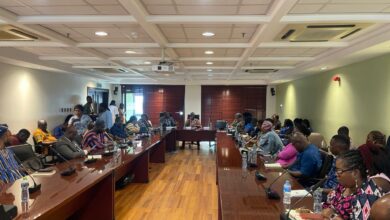Mahama Ayariga writes: Understanding the Exercise of Discretionary Power under Article 146(10) in suspension of Chief Justices
Mahama Ayariga writes: Understanding the Exercise of Discretionary Power under Article 146(10) in suspension of Chief Justices

The Majority Leader & Leader of Government Business in Ghana’s Parliament, Mr. Mahama Ayariga, wadded into the constitutionality or otherwise of the suspension of the Chief Justices, Her Ladyship Justice Gertrude Araba Esaaba Sackey Torkornoo.
According to him Article “146(10) of the 1992 Republican Constitution is clear on the processes that needs to be taken for the removal of a Chief Justice.
Below is an unedited write-up by Mahama Ayariga
Article “146(10) Where a petition has been referred to a committee under this article, the President may –
(a) In the case of the Chief Justice, acting in accordance with the advice of the Council of State, by warrant signed by him, suspend the Chief Justice.”
There is no unchecked discretion here because the discretion of the President to suspend the Chief Justice is checked by the fact that he must act “in accordance with the advice of the Council of State”.
The duty to be “fair and candid” requirement of article 296(a) is inbuilt in article 146(10)(a) by the requirement that the President can only suspend the Chief Justice “in accordance with the advice of the Council of State”.
The concerns over a particular President’s potential arbitrariness, caprice, bias, resentment, prejudice, or the likelihood of personal dislike are equally expected to be contained by the mechanism of ensuring that he must obtain the advice of the Council of State. Unless the Ghana Bar Association (GBA) and all the commentators I have heard are saying they have issues with the advice of the Council of State, I am baffled at the disingenuous efforts to fault the process so far.
Indeed, in this instance, a constitutional instrument will only be dictating to the Council of State the grounds on which they should be advising the President as to whether to suspend a Chief Justice or not. Don’t forget article 92(11), which says in part that “the Council of State may regulate its own procedure.” The President cannot regulate the exercise of their advisory functions content-wise.
I draw attention to article 159, which say the “The Chief Justice may, acting in accordance with the advice of the Judicial Council and with the approval of the President, by constitutional instrument, make regulations for the efficient performance of the functions of the Judicial Service and the Judicial Council under this Chapter.”
The Ghana Bar Association (GBA) has never asked the Chief Justice to public a constitutional instrument indicating how she “may” “make regulations for the efficient performance of the functions of Judicial Service and the Judicial Council”.
That is because they appreciate that it is a discretion that is well checked by the requirements of “acting in accordance with the advice of the Judicial Council and with the approval of the President…” Unless anyone is contending that Article 296(c) does not apply because she is also a “judge”. But this relates to her administrative functions as Chief Justice.
Of all the things that the framers of our constitution thought important to define in article 294, “stated misbehaviour,” “incompetence,” and “inability to perform the functions of his office” were expressions deemed not matters worthy of elevation to express constitutional interpretation. I have not yet come across their meanings.
The Constitution says the Committee setup under article 146 should determine on case by case basis before them what those mean.
Mahama Ayariga MP, Majority Leader & Leader of Government Business
Source: Inghananewstoday.com




